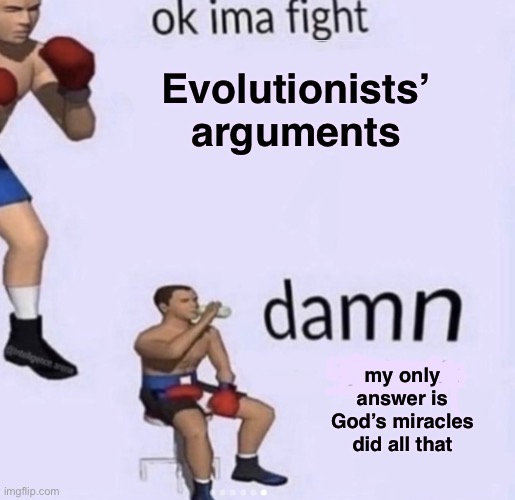Here we go again. For more significant mutations than simple color changes, like the number of wings on an insect, the minimum viable population argument of not enough genetic variation has been used against the idea of Adam and Eve, but when we use it against evolution in general, evolutionists lose their minds. The one theory that halfway makes sense is that a mutation becomes recessive, spreads through a large enough population, and then something triggers that recessive gene to become dominant, though science doesn't have a reason for that happening yet. Darwin himself said that if any complex ORGAN could be shown to not be the result of many small mutations that his theory would fall apart. Not single celled organisms, complex organs. That's usually answered with "leaps", where significant damage to DNA results in it recombining with odd bits to create a genetic "leap", and not trigger apoptosis, which is a miracle all by itself. This then raises the question of what this mutant would breed with, since a genetic leap means it wouldn't be able to breed with the original population. It's like evolutionists don't understand how sexual reproduction works. I guess them and blue haired liberals have something in common. And there's the words of Wolfgang von Goethe, "The question for future naturalists is how, for example, cattle got their horns and not for what they are used", pointing out how some people seem to think evolution happens because something is ultimately beneficial and ignoring natural selection being the driving force behind mutations where the in-between could have minimal benefit, possibly even being a burden on the organism, until the mutation fully developed. The opposite of how natural selection works. You are at the beginning of the Dunning Kruger curve. You're in for a ride. "The first sip from the glass of natural sciences can make you an atheist, but at the bottom of the glass you'll find God waiting for you." - Werner Heisenberg, pioneer of quantum mechanics.

 Caption this Meme
Caption this Meme  Caption this Meme
Caption this Meme